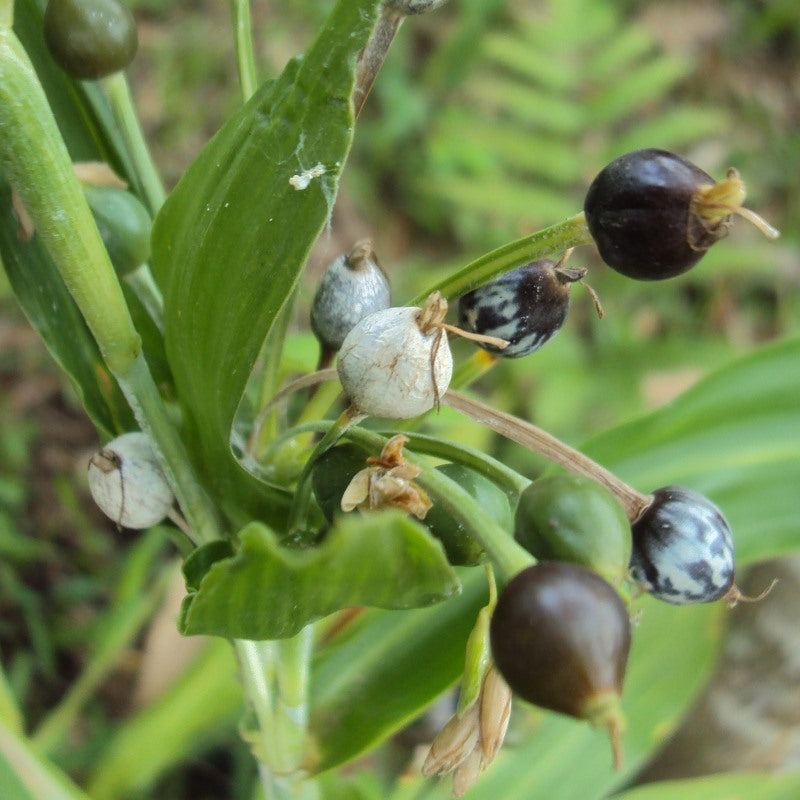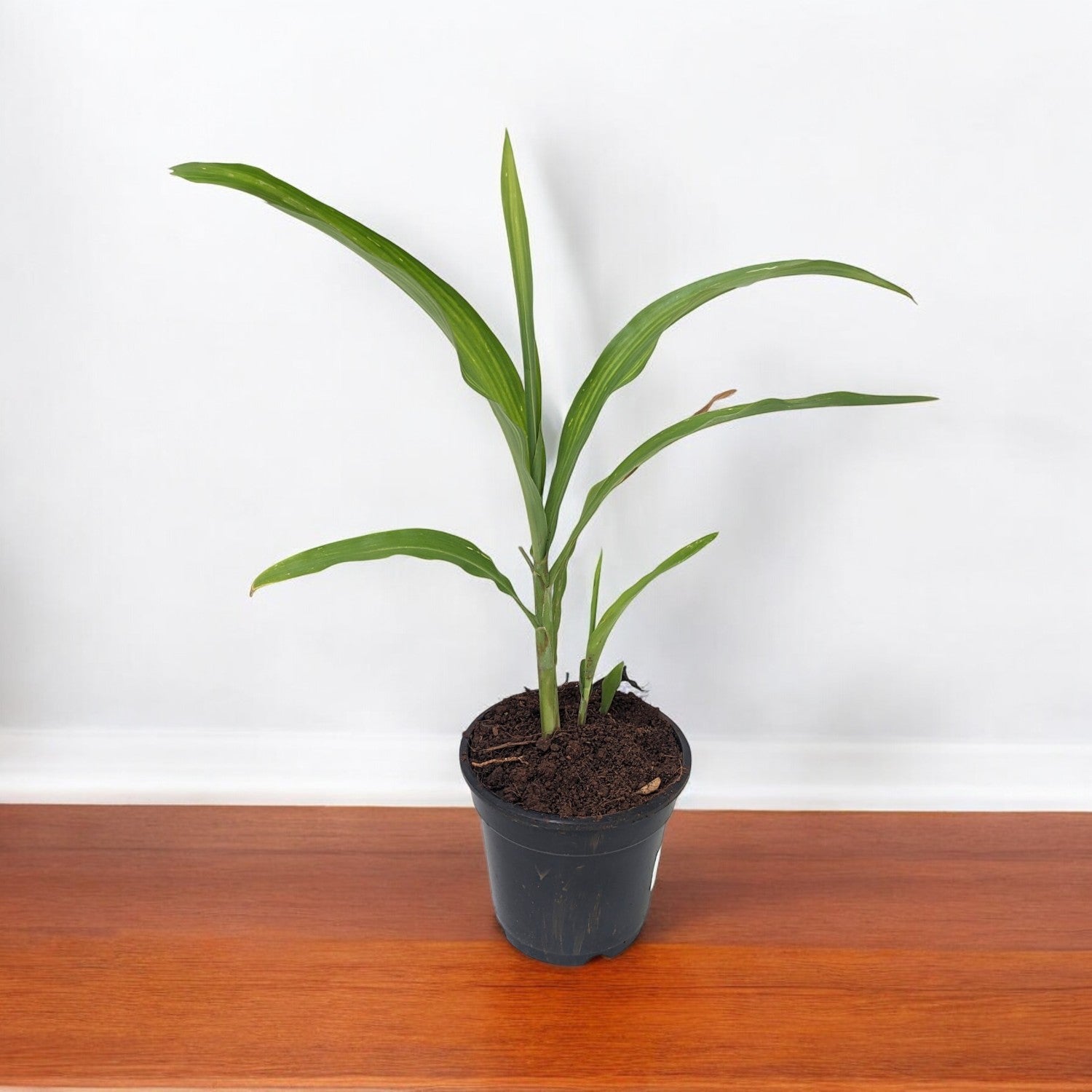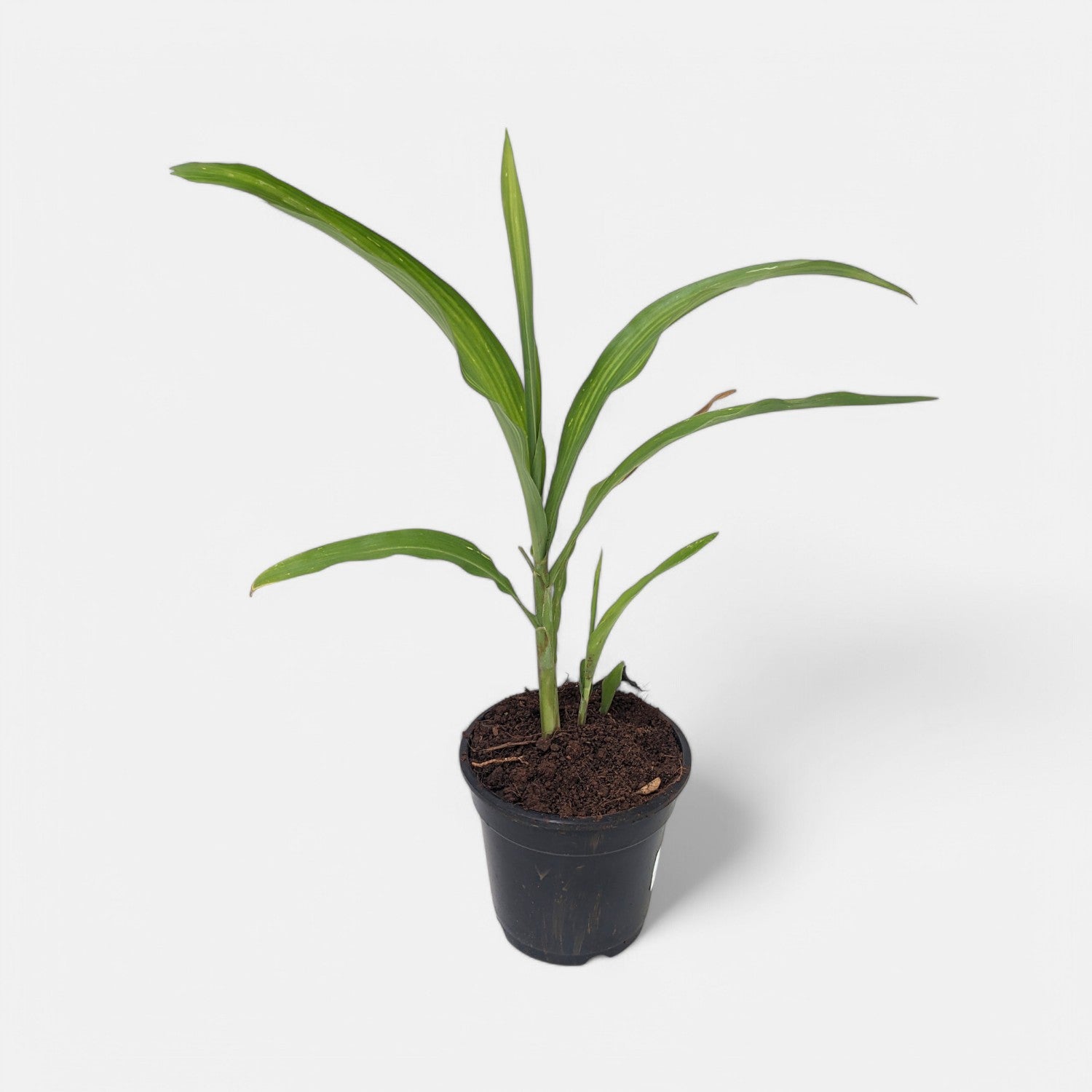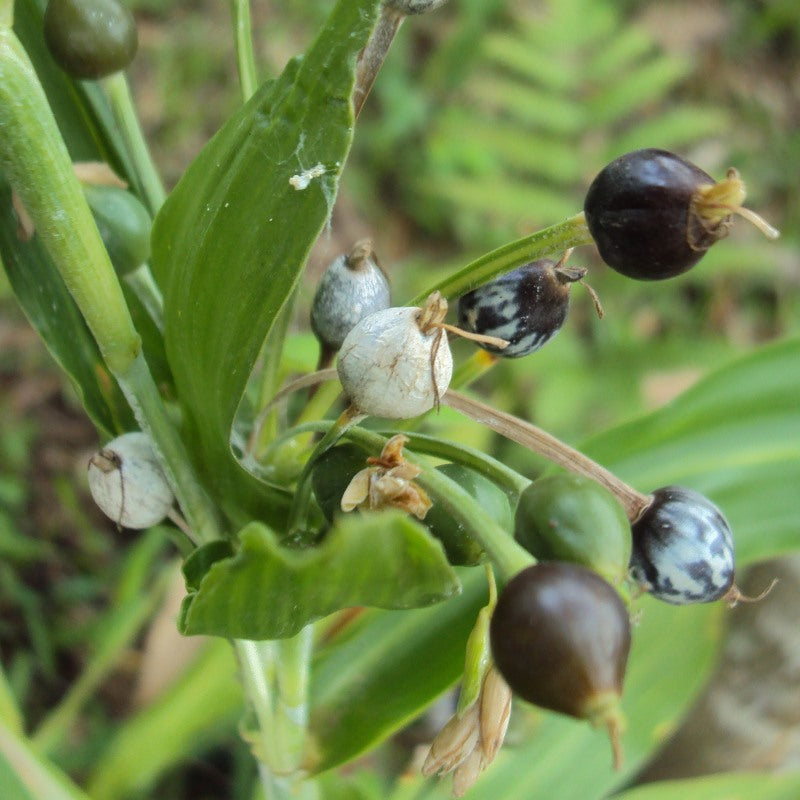
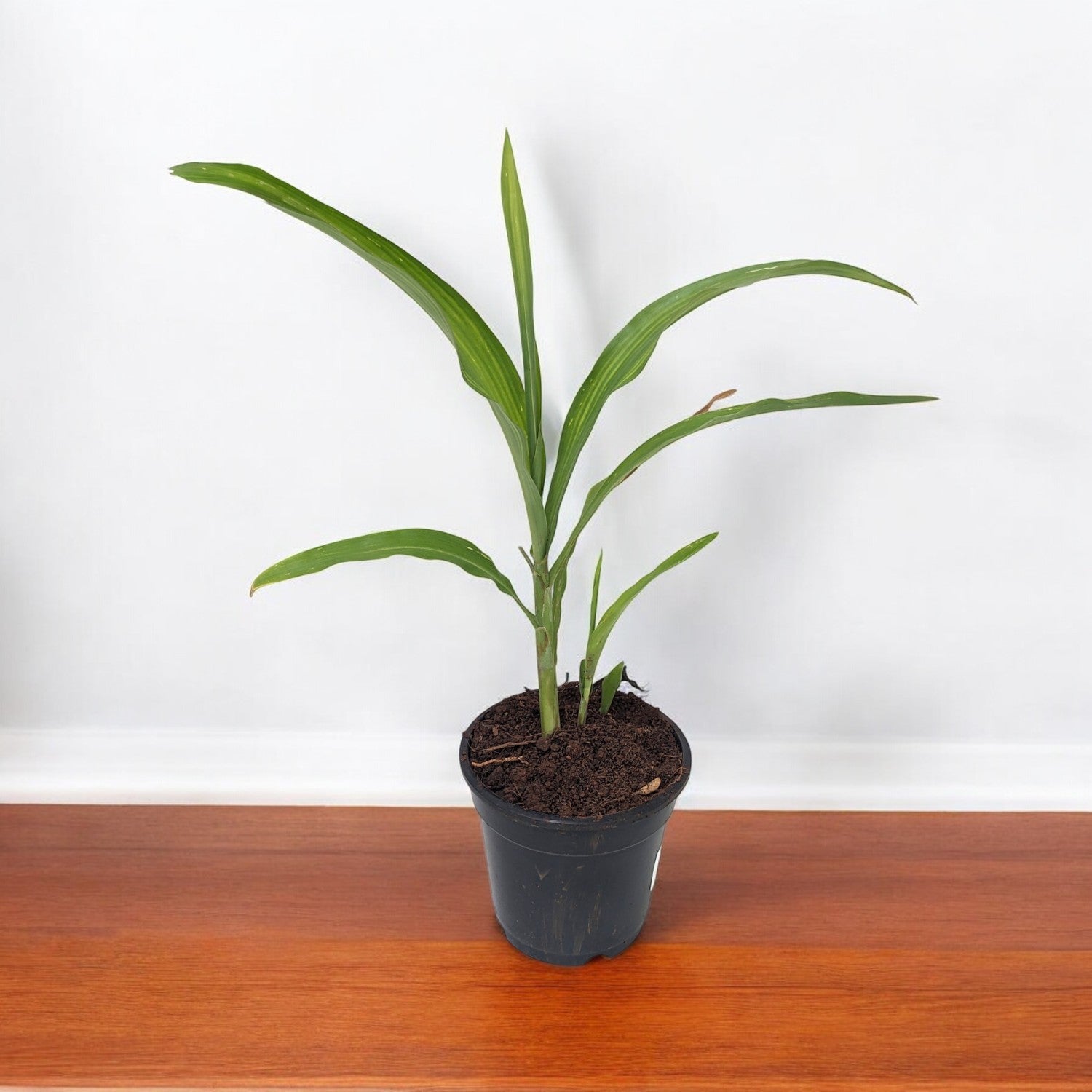
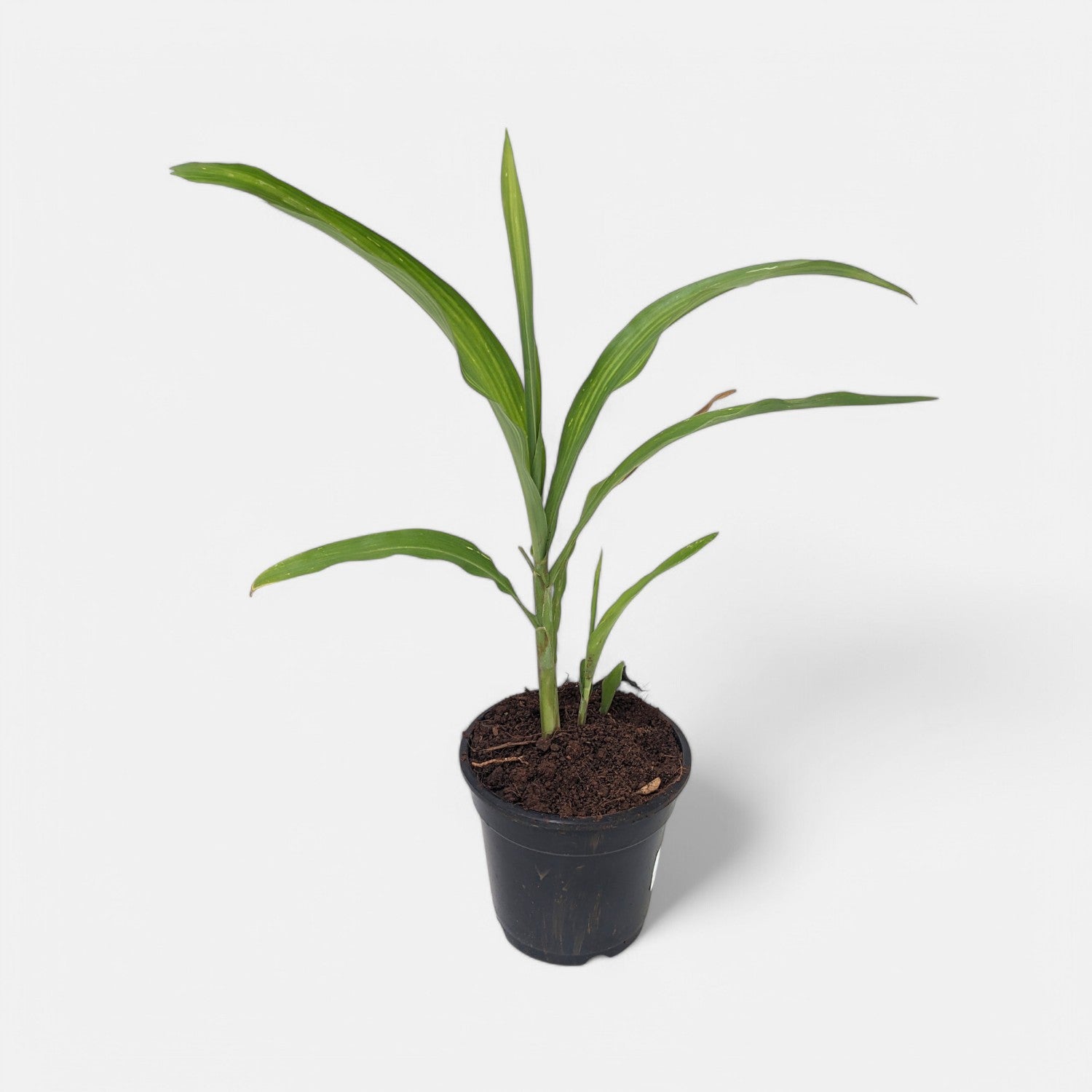
Brief Intro
Vaijanti (Vaijayanti Plant)
Basic Product Details
- Scientific Name: Coix lacryma-jobi
- Common Names: Vaijanti Mala, Job's Tears, Vaijayanti, Gurgur, Gurlu, Gavedhuka, Ashru Bija
- Plant Height: 1-2 feet (approximately)
- Pot Size: 5-6 inch nursery pot
- Plant Type: Annual Herbaceous Plant
- Soil Type: Well-draining, slightly acidic to neutral soil
- Sunlight Requirement: Full sunlight to partial shade
Product Overview
The Vaijanti Plant, also known as Vaijayanti or Job's Tears (Coix lacryma-jobi), is a unique herbaceous plant recognized for its tear-shaped seeds used in making garlands (mala) for religious and spiritual practices. It is an easy-to-grow plant that thrives in warm climates and is valued for its decorative appearance as well as its medicinal uses. The plant produces elegant green flowers followed by its signature tear-shaped seeds, which are used in cultural rituals.
Features and Characteristics
Growth Habit
- Annual herb with a height of about 3-5 feet.
- Ideal for gardens, pots, and hanging baskets due to its compact growth.
Flowers & Seeds
- The plant produces green flowers which later develop into tear-shaped seeds.
- These seeds are the primary material for making mala (garlands) used in spiritual rituals.
Frost Tolerance
- Prefers warm climates and is not frost-tolerant. Best grown in tropical and subtropical regions.
Uses of Vaijanti Mala Plant
Ornamental Uses
- Used for creating decorative garlands and prayer beads.
- Adds beauty to gardens and balconies with its elegant appearance.
Cultural & Religious Uses
- Commonly used in Hindu rituals, temple offerings, and festivals.
- The mala made from its seeds is considered sacred and symbolizes purity and spiritual connection.
Medicinal Uses
- In traditional medicine, Job's Tears are believed to have anti-inflammatory and detoxifying properties.
How to Grow & Care for Vaijanti Mala Plant
Climate Requirements
- Prefers warm and tropical climates with temperatures ranging from 20°C to 30°C.
- Thrives best in full sunlight.
Soil
- Grows well in well-draining, slightly acidic to neutral soil.
- Ensure good drainage to avoid waterlogging, which could harm the plant.
Watering
- Water regularly, ensuring the soil remains moist but not waterlogged.
- Watering can be reduced during cooler seasons.
Fertilizer
- Use a balanced fertilizer every 4-6 weeks during the growing season.
- Organic compost can be added for better soil health and plant growth.
Pruning & Maintenance
- Prune dead flowers to encourage more blooms and to maintain a neat appearance.
- The plant doesn’t require heavy pruning but can be cut back for shape.
Pest & Disease Control
- Susceptible to pests like aphids, whiteflies, and mealybugs.
- Use organic solutions like neem oil or soap-based insecticides for pest control.
Benefits of Growing Vaijanti Mala Plant
Aesthetic & Landscaping Benefits
- Adds graceful greenery and a spiritual touch to your garden.
- Perfect for decorative garlands, mala, and prayer beads.
Cultural & Symbolic Benefits
- Its seeds are used in religious rituals and cultural ceremonies.
- Symbolizes spiritual purity, making it an ideal plant for temples and sacred spaces.
Medicinal & Health Benefits
- The plant is believed to have detoxifying, anti-inflammatory, and immune-boosting properties.
Placement Suggestions
- Perfect for gardens, balconies, terraces, or potted plants that can receive full sunlight.
- Can be grown in small containers or hanging baskets for a more ornamental look.
Common Questions and Answers About Vaijanti Mala Plant
How often does the Vaijanti Mala plant bloom?
It blooms throughout the growing season, producing small green flowers before the seeds develop.
Can the Vaijanti Mala plant be grown in pots?
Yes, it can be grown in pots or containers, making it suitable for small spaces.
How much sunlight does the Vaijanti Mala plant need?
It requires full sunlight for the best growth and flowering. A minimum of 6 hours of direct sunlight daily is ideal.
Can I use Vaijanti Mala flowers for religious ceremonies?
Yes, the seeds and flowers are commonly used in mala for spiritual and religious rituals.
What are the medicinal benefits of the Vaijanti Mala plant?
The seeds are believed to have detoxifying and anti-inflammatory properties, and they are used in traditional medicine.
Is Vaijanti Mala plant hardy in cold climates?
No, it prefers warm climates and should be protected from frost during cold seasons.
The Vaijanti Plant is a perfect blend of beauty and spiritual significance. Order now and enhance your garden or home with this elegant plant, known for its decorative flowers and sacred uses!
FAQs:
What is the Return Policy?
This product is Not Returnable. It may be replaced or refunded in case of damage or defective condition on a case to case basis.
How to cancel my order?
Cancellation for Live Plants is allowed before the dispatched. You can request cancellation through Your Orders page or by contacting customer service within that time.
What if i received damage product?
If a product is received in a damaged or defective condition, you need to contact the customer service within 1 days of delivery. Free of cost replacement or refund claim is available to you.

